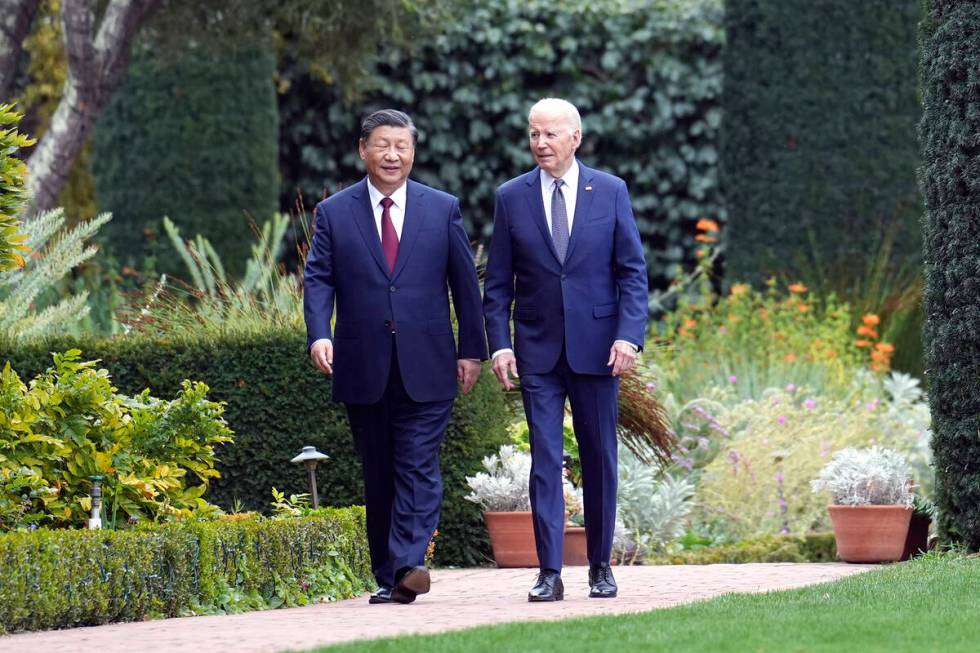In the Israel-Hamas war, China sees opportunity to gain ground on US

As the Israel-Hamas war has unleashed a growing humanitarian crisis in the Gaza Strip and roiled global politics, one superpower has claimed neutrality: China has called on both sides to exercise restraint and for the international community to expedite a two-state solution — distant goals in this fraught moment.
But other actions leave little doubt where China stands.
Its foreign minister has criticized Israel for the bombardment of Gaza. China has never publicly condemned the brutal Oct. 7 Hamas terrorist attack that started the latest war.
And China’s strict internet censors have allowed a flood of Chinese-generated antisemitism, including tropes of Jews controlling finance and media, praise for Adolf Hitler and comparisons of Israeli soldiers to Nazis.
Experts said China’s aim is clear: It views the Israel-Hamas war as an opportunity to gain ground against the United States in the battle for influence in the Arab world.
“At the end of the day, it’s nothing to do with the Palestinians or even the Israelis,” said Mor Sobol, assistant professor of diplomacy and international relations at Tamkang University in Taiwan. “There’s a bigger game being played here. They are framing the whole conflict through the lens of a great power rivalry.”
The United States has long held sway in the Middle East, a principal power broker and often the only mediator Israel would trust, while maintaining some respect in parts of the Arab world.
But in recent years both China and Russia have made inroads into the region, striking alliances with players anathema to U.S. interests, including Iran and Syria.
With the current conflict, what many in Arab countries see as the Biden administration’s embrace of Israel has given China a new opening. It has played to public opinion in Arab and Muslim nations with harsh criticism of its American foe.
“It’s a very cost-effective strategy, trying to portray the U.S. as a biased actor,” Sobol said. “It’s just statements, but those statements score points with the Arab or Muslim world.”
In a show of its growing clout in the region, China helped broker a deal in March re-establishing diplomatic relations between Saudi Arabia and Iran, longtime bitter foes.
Embracing the image of a global peacemaker, China had also aspired to mediate between the Palestinians and Israel, meeting with Palestinian Authority President Mahmoud Abbas in June and inviting Israeli Prime Minister Benjamin Netanyahu to Beijing for a state visit in October.
But since war broke out, China has adhered to a playbook that it has used in other global conflicts.
After Russia invaded Ukraine in 2022, Beijing adopted what some analysts referred to as a “pro-Russian neutrality,” in which it claimed the middle ground while using state and social media to spread stories and commentary in favor of Russia.
Similarly, China has been guided by a philosophy of “anti-Western neutrality” when it comes to the Israel-Hamas war, said Ahmed Aboudouh, a Middle East and North Africa specialist at Chatham House, a London-based think tank.
He added that China and Russia have been working together on Middle East policy, another sign of their growing collaboration opposing the West.